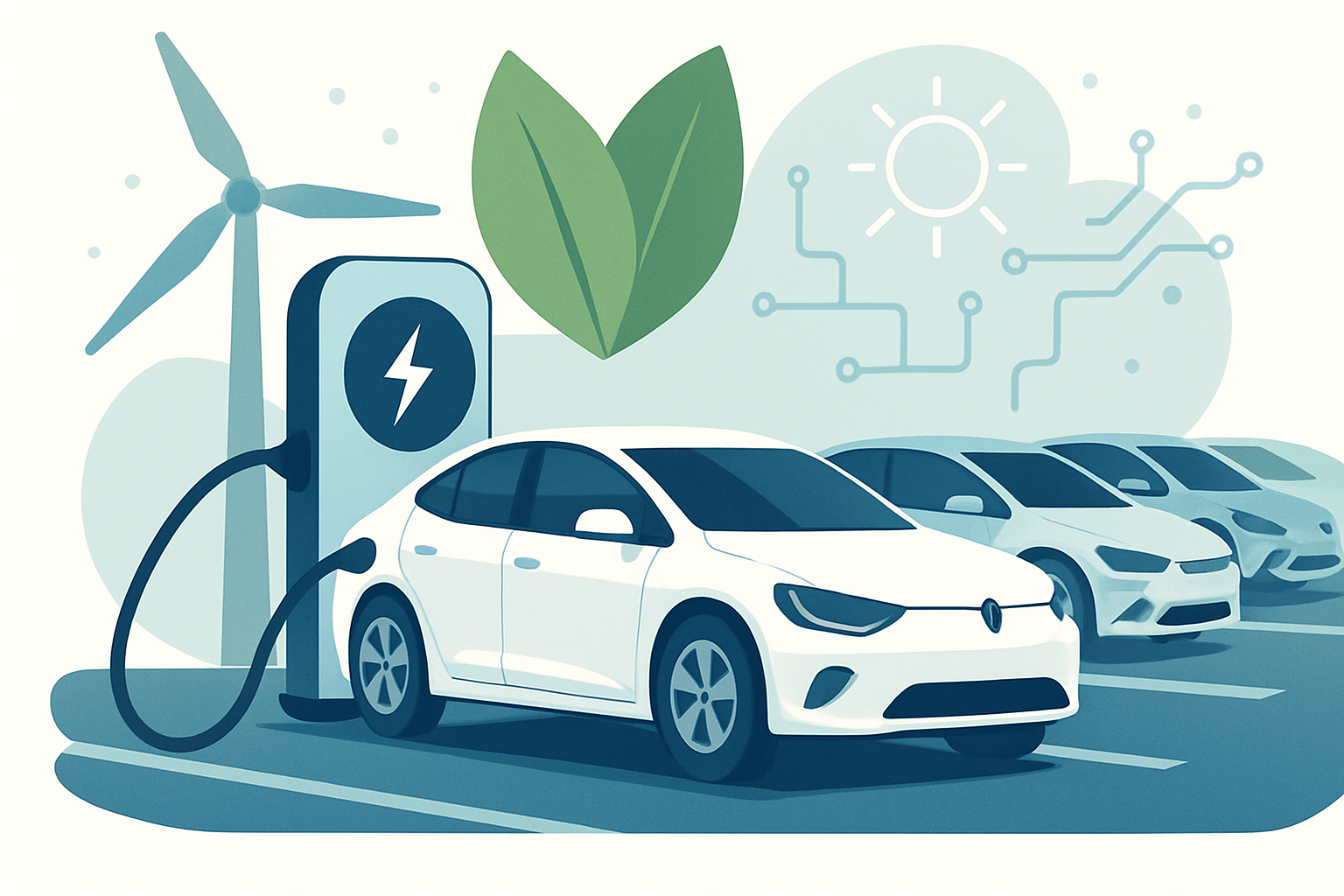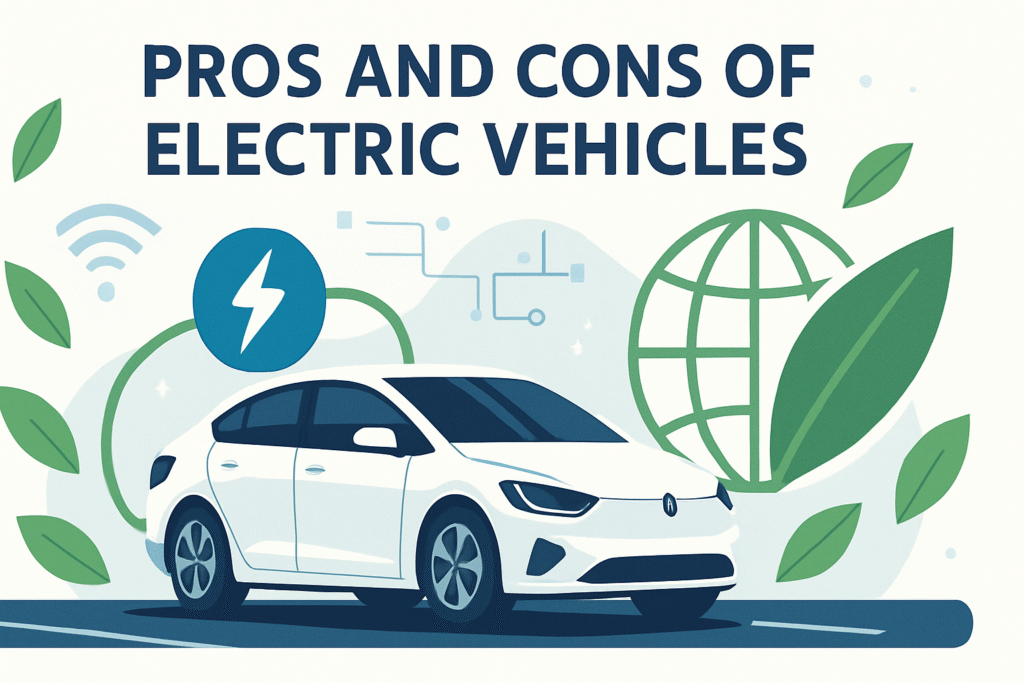Scottish inventor Robert Anderson built the first crude electric carriage in the late 1820s.. In the 20th century, electric vehicles lost popularity due to high cost, slow speed, and short range on a single charge. However, interest in electric vehicles has increased due to growing concern about environmental damage caused by emissions of hydrocarbon-fueled vehicles.
Here we will discuss some pros and cons of EV vehicles.
Pros of Electric Vehicles (EVs)
Low Running Cost:
One of the biggest advantages of EVs in India is their low running cost, as charging an EV is much cheaper than filling a fuel tank. The maintenance cost of EVs is also low as they have fewer moving parts and also save the cost of changing fuel, as fuel is not required in EVs.
Environmental Benefits:
EVs don’t give off harmful gases from the exhaust, so they help reduce air pollution. EVs are not completely silent, but they produce much less noise compared to traditional internal combustion engine vehicles, helping to lower noise pollution. They also contribute to the Paris Agreement on climate change.
Government Incentives:
In order to promote the use of electric vehicles, the government has introduced several benefits. For example, buyers can get a discount under the FAME II scheme when purchasing an EV. These vehicles are also taxed at a much lower GST rate of 5%, which is very low compared to that on traditional internal combustion engine vehicles. Additionally, in some states, there is no road tax or registration fee for EVs, which helps buyers save money.
Performance:
EVs use a single-speed transmission, which means there’s no need to shift gears. This makes driving feel faster, smoother, and more responsive. You might think combustion-engine cars with AMT (Automated Manual Transmission) also don’t require gear shifting, and that’s true for the driver. However, in AMT vehicles, gears are still changed internally, which can cause jerks and slight delays during acceleration.
Future-Ready:
India is working hard to become a global hub for electric vehicle (EV) manufacturing. This means the country is focusing on producing more EVs locally, building battery factories, and developing new EV technologies. This not only creates new job opportunities but also boosts technological development.

Cons of Electric Vehicles (EVs)
High Initial Cost:
One of the main disadvantages is that they are more costly than petrol, diesel vehicles when you purchase them. And the battery life lasts around 7 years. After that, you have to buy a new one, which is very expensive, almost half the price of the car.
Charging Challenges:
While the number of EVs on the road is growing, many tier-2 cities and rural areas still lack proper charging infrastructure. In these places, public charging stations are either very few or not available at all. Above all, charging an EV takes time—about 30 minutes to 1 hour at a fast-charging station, and around 6 to 8 hours at home using a standard power connection. For many people, this long wait feels inconvenient compared to the quick refueling of petrol or diesel vehicles.
Limited Driving Range:
Most electric vehicles can run 250 to 300 kilometers on a single charge, which is quite low compared to petrol or diesel cars. This becomes a major concern when planning long-distance trips.
Limited Model:
As demand for EVs continues to grow, there are still fewer models available as compared to fuel vehicles. This leaves few options for buyers in the budget-friendly segment.
Battery Issues:
One of the concerns about EVs’ batteries is that they lose efficiency if the temperature is too hot or too cold. Which also affects the driving range. Also, most EVs use lithium-ion batteries disposing of these batteries is a big challenge, as they can harm the environment while recycling or disposing them.
Brief Summary
Electric vehicles are shaping up to be a strong alternative for eco-friendly transportation. They provide lower running costs, help cut pollution, and deliver a more modern driving experience. Still, anyone considering an EV should carefully think about some of the current obstacles, like higher upfront costs, limited driving range, and fewer charging stations. The good news is that with ongoing improvements in technology and the charging network, many of these hurdles are likely to fade, making electric cars an even better choice down the road.







